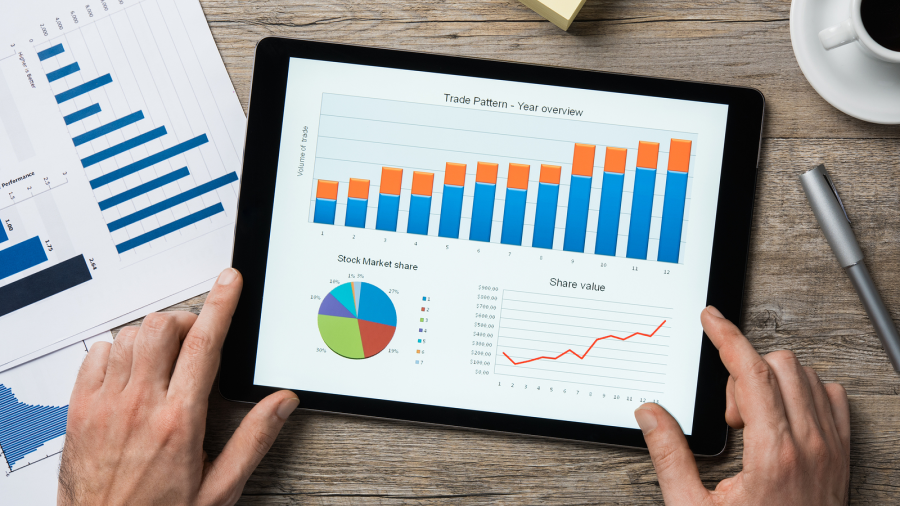Personal Wealth Management / Market Analysis
Your First 2023 Economic Check-In
Are those green shoots in Europe?
January isn’t over yet, but thanks to the fine folks at S&P Global, we have our first inkling of how the global economy started 2023. Yes, flash purchasing managers’ indexes (PMIs, monthly surveys that track the breadth of economic activity) for January are out, and we think there are some hints of good news—further suggesting 2023’s economic landscape has a good chance of shaping up better than the dismal projections we have seen from financial commentators we follow. Big negative economic surprise that hits stocks hard remains unlikely, in our view.
The Eurozone Expands a Bit
Most noteworthy, in our view, was the eurozone’s composite PMI, which combines manufacturing and services output, rising to 50.2.[i] PMI readings over 50 imply expansion, so this suggests output rose a smidge for the first time since June.[ii] Manufacturing stayed in contraction at 48.8, but services flipped to growth at 50.7.[iii] Now, the two individual countries reporting thus far seemingly told opposite stories. Germany and France’s composite readings both stayed in contraction at 49.0 and 49.7, respectively—but German services grew whilst French services contracted, whilst Germany’s manufacturing PMI contracted and France’s grew.[iv]
So, beneath the surface, things still appear mixed to us. But in the eurozone, we have found that isn’t necessarily bad for stocks, which we think move most on the gap between reality and expectations. Last autumn, financial commentators we follow pencilled in a deep eurozone recession—with Germany bearing the brunt—as the region drained its natural gas reserves in winter and had to resort to rationing and blackouts.[v] These projections haven’t come true. Instead, the region filled reserves ahead of schedule, got a head start on replacing Russian supply and used an unseasonal warm stretch to replenish reserves after winter’s initial cold snap.[vi] With the energy situation going much better than commentators we follow expected, the region’s economy seems to be muddling through.
In our view, the key word is “muddling.” We think many would agree the eurozone economy isn’t in great or even necessarily good shape. Output may have improved, but new orders are still falling—not great, considering today’s orders are tomorrow’s production.[vii] Yet on the bright side, cost pressures are easing, and demand is resilient enough that businesses have been able to push more of last year’s increased costs to customers. In our view, this is encouraging, as it means inflation (broadly rising prices across the economy) appears to be working its way through the system and should be digested soon enough.
So Does Japan
Japan’s PMIs look similar to the eurozone’s: composite back in growth at 50.8, services accelerating to 52.4 and the manufacturing PMI contracting at the same rate as December (48.9).[viii] But the drivers are different. We think manufacturing’s big headwinds were weaker demand in China—due first to China’s Zero-COVID policies and then to the COVID outbreak as restrictions eased in December—and the weak yen, which raised energy costs.[ix] Higher costs hit services, too, but manufacturing is more energy intensive, which we think is why it suffered an outsized hit.[x] Services also benefitted from a big plus: the continued easing of domestic COVID restrictions.[xi] Not only is the government letting people move around more, but they are also encouraging them to do so via the Nationwide Travel Discount Program.[xii]
In our view, it is too soon to know whether this is enough of a plus to put Japanese Gross Domestic Product (GDP, a government-produced measure of economic output) back in the growth column. PMIs show the breadth of activity, not how much activity grew or fell. But in a perhaps counterintuitive way, we think the split between manufacturing and services shows reason for optimism. We don’t see reopening tailwinds lasting long, just as our research shows they didn’t in the US, UK and Europe. Yet maybe they buy enough time for lower energy costs (courtesy of the stronger yen and falling global commodity prices) to kick in.[xiii] That is a positive scenario we haven’t seen discussed much, and even if it doesn’t mean robust economic growth, we think it would likely keep Japan contributing to global growth.
The UK and US Stay in the Doldrums
Alas, growth wasn’t universal. Composite PMIs in the US and UK stayed in contraction, with manufacturing and services below 50 in both.[xiv] Contraction in the US was at least less widespread, with the composite PMI inching from December’s 45.0 to 46.6, but the UK’s deepened to a 24-month low 47.8 as services deteriorated.[xv]
In both countries, businesses reported the same long-running headwinds: inflation and customers’ overall hesitancy to ramp up.[xvi] That isn’t great, in our view, but we think it suggests that at this point, people are increasingly chewing over the same rehashed troubles. In our experience, new negatives don’t appear to be entering the spotlight and shaking things up. The more the old issues hit PMIs and other data, the more people can see their impact manifesting. Counterintuitively, we think that could help people digest them and move on—if nothing else, seeing the headwinds have their projected impact might ease uncertainty over how much they would affect the economy. Our research suggests sometimes that is all stocks need. Contracting PMIs will likely also help take the surprise power out of a recession, should we indeed get one. In our view, that also speaks to stocks probably moving on much faster than commentators we follow seem to anticipate now.
[i] Source: S&P Global, as of 24/1/2023.
[ii] Ibid.
[iii] Ibid.
[iv] Ibid.
[v] “Euro Zone Predicted to Have a Deep Recession and a Difficult, Slow Recovery,” Silvia Amaro, CNBC, 16/11/2022. A recession is a period of contracting economic output.
[vi] “Germany Reaches 95% Gas Storage Target Ahead of Schedule,” Michael Nienaber, Petra Sorge and Rachel Morison, Bloomberg, 13/10/2022. Accessed through Financial Post.
[vii] See note i.
[viii] Source: S&P Global, as of 24/1/2023. Jibun Bank Flash Composite PMI, January 2023.
[ix] Source: FactSet, as of 24/1/2023. Statement based on Brent crude oil spot prices, 31/12/2021 – 20/12/2022. Japan imports much of its energy, which is priced globally in US dollars, so Japan’s energy costs rise even more when the yen is weak against the dollar.
[x] Source: US Energy Information Administration, as of 24/1/2023. Statement based on Japan Energy Consumption by sector.
[xi] “Japan Considers Downgrading Covid-19 to Same Level as Seasonal Flu,” Emiko Jozuka, Junko Ogura, Gawon Bae and Kathleen Magramo, CNN, 20/1/2023.
[xii] “Japan Reinstates Its Domestic Travel Discount Program, Here's Who Qualifies,” Kelsey Marie, Travel Noire, 18/1/2023. Accessed through Yahoo News.
[xiii] Source: FactSet, as of 24/1/2023. Statement based on Japanese yen per US dollar and S&P GSCI Index price level, 21/10/2022 – 24/1/2023.
[xiv] See note i.
[xv] Ibid.
[xvi] Ibid.
Get a weekly roundup of our market insights.
Sign up for our weekly e-mail newsletter.

See Our Investment Guides
The world of investing can seem like a giant maze. Fisher Investments UK has developed several informational and educational guides tackling a variety of investing topics.




